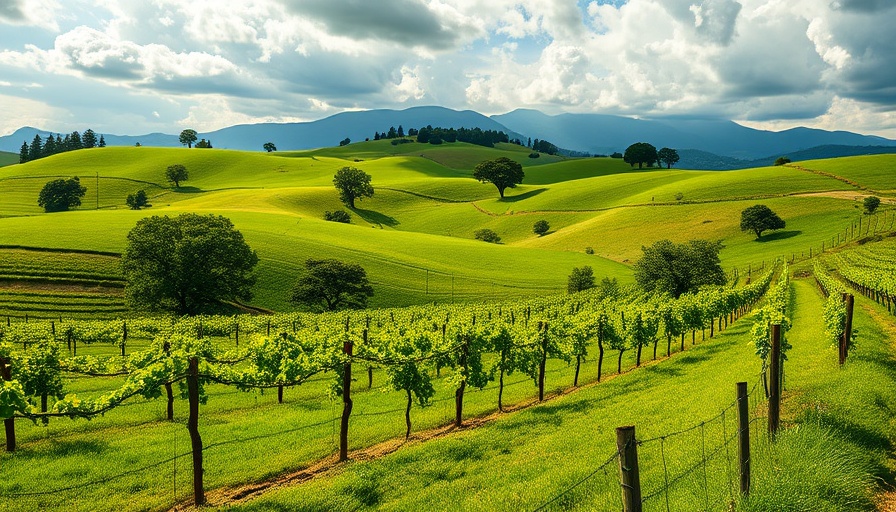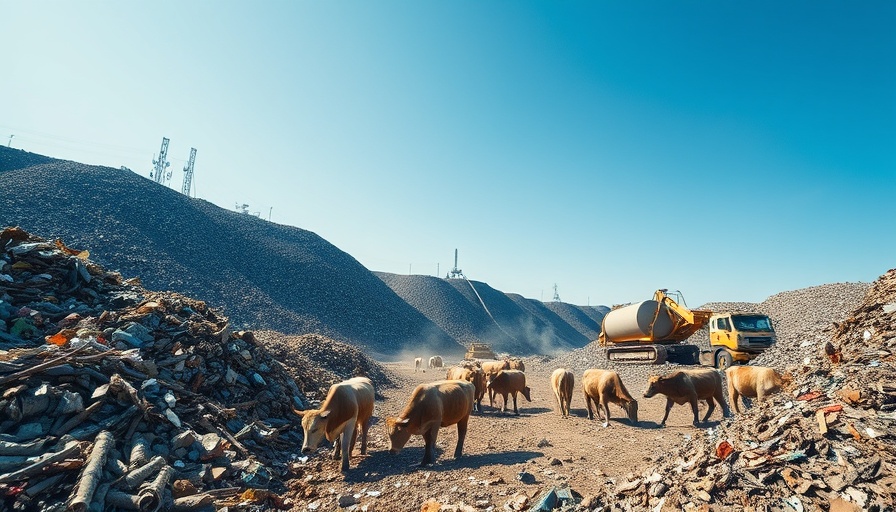
Reimagining Agriculture: The Kiani Preserve's Role in Modern Farming
As the damage caused by traditional industrial agriculture becomes increasingly apparent, innovative solutions are taking root. One of the latest in this movement is the Kiani Preserve in Southern California, a beacon of regenerative farming practices that seek not only to cultivate but to heal the land. Founded by Joe Kiani, a prominent innovator known for his pioneering work in healthcare, the Preserve embodies a profound commitment to both human health and environmental stewardship.
The Essence of Regenerative Agriculture
At the heart of the Kiani Preserve’s mission lies regenerative agriculture—a farming philosophy that emphasizes restoring the earth's health rather than depleting it. Unlike conventional methods that often prioritize short-term yields, regenerative practices like cover cropping, no-till farming, and rotational grazing foster long-term soil vitality and promote biodiversity. Joe Kiani sums it up perfectly when he states: 'Farming should be a relationship with the land, not a series of transactions.' This approach not only supports ecological balance but also enhances food production by working in harmony with natural processes.
Why Regenerative Farming is Essential
The urgency for adopting regenerative methods is underscored by the agriculture industry's significant role in global greenhouse gas emissions and ecological degradation. Conventional farming, with its reliance on chemical inputs, has often led to soil erosion and biodiversity loss. Regenerative agriculture provides a viable solution—restoring ecosystems and sequestering carbon effectively. This model not only combats climate change but also sustains local communities, which often suffer the harshest consequences of environmental harm.
A Vision for the Future
The Kiani Preserve serves as a model for what sustainable agriculture can look like in the 21st century. By demonstrating a commitment to ecological health, it inspires farmers and community members to embrace more sustainable practices. Kiani's vision—a partnership with nature rather than an adversarial relationship—promises a brighter future for both our planet and its inhabitants.
In conclusion, as we face increasing environmental challenges, it's imperative to look towards models like the Kiani Preserve that prioritize restoration, sustainability, and a deep-rooted care for our planet. The movement towards regenerative agriculture isn't just a trend; it offers a pathway for meaningful change in how we grow food, care for the land, and honor our responsibilities to future generations.
 Add Row
Add Row  Add
Add 



Write A Comment